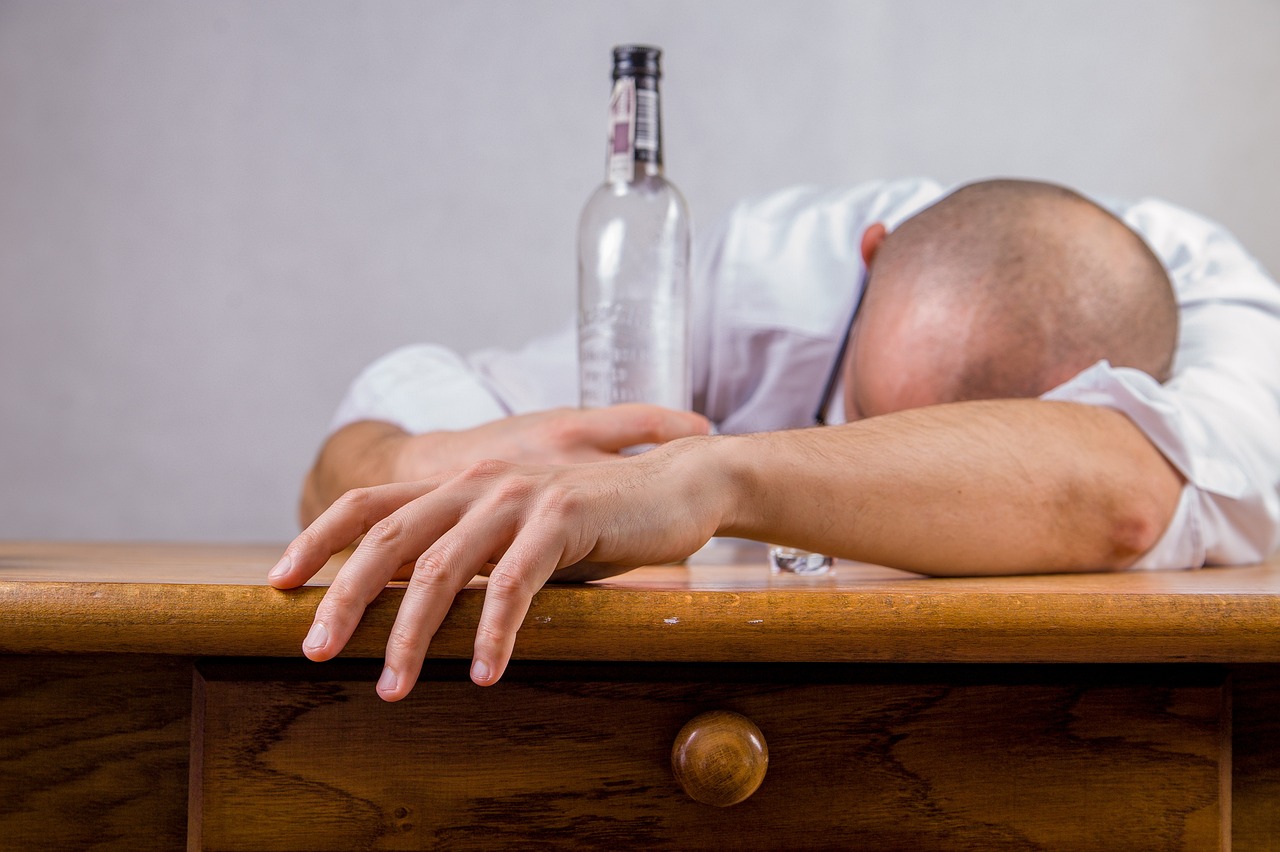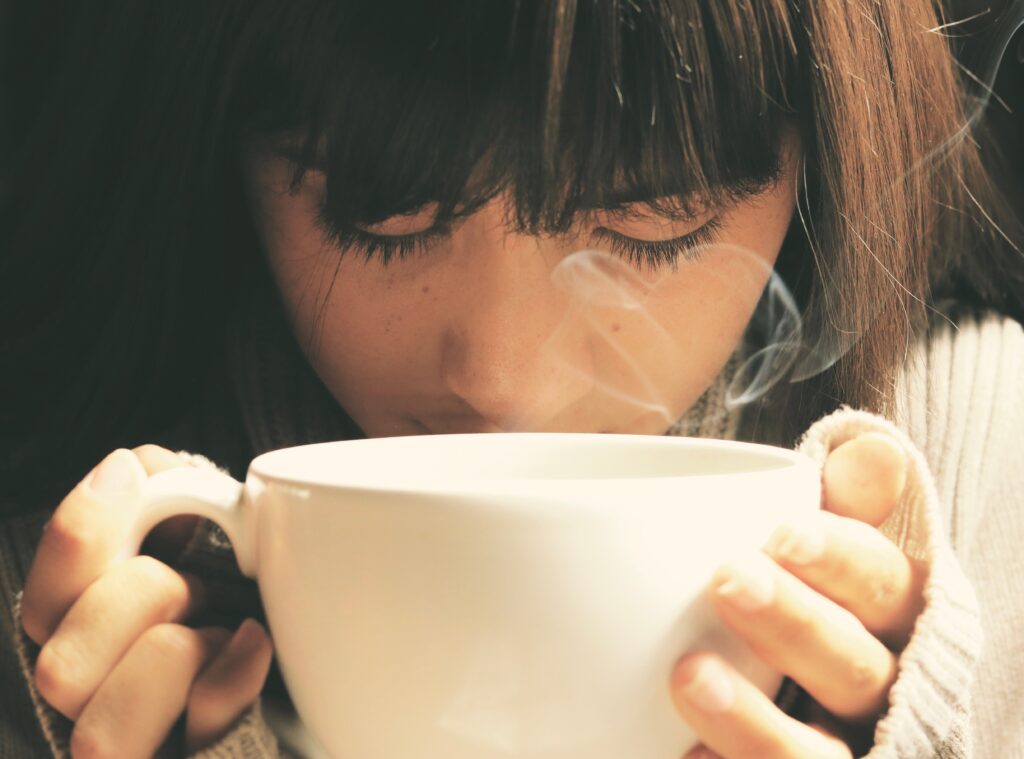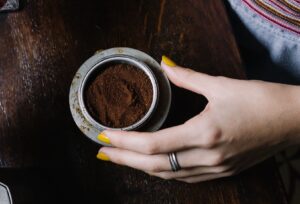We’ve all been there – waking up with that throbbing headache, the world seeming a little too bright, and a mouth drier than the Sahara. Enter our morning savior: coffee.
But wait, before you rush to your espresso machine or local café, let’s dive into the intriguing connection between coffee and hangovers. Is your beloved brew helping or hindering your recovery? Join us as we spill the beans on this caffeinated conundrum. Stay tuned!
Does caffeine help when drunk?
Caffeine, often consumed in the form of coffee or energy drinks, is a common go-to remedy for those who are intoxicated and are trying to sober up. However, the relationship between caffeine and alcohol’s effects on the body is complex and can vary depending on the individual and the quantity consumed. Here are a few key points to consider:
- Caffeine Doesn’t “Sober You Up”: Caffeine can make an intoxicated person feel more awake or alert, but it doesn’t actually reverse the cognitive impairment caused by alcohol. In other words, if you drink coffee after consuming alcohol, you might feel more awake, but you’re still impaired.
- Misperception of Impairment: Combining caffeine with alcohol can lead to a dangerous misperception. The stimulating effects of caffeine can mask the depressant effects of alcohol, leading people to believe they’re less intoxicated than they actually are. This might lead to risky behaviors, such as driving under the influence.
- Dehydration: Both alcohol and caffeine are diuretics, meaning they increase urine production. Consuming both can amplify the dehydrating effects, which may exacerbate symptoms like headaches and dizziness.
- Heart and Blood Pressure Effects: Caffeine can increase heart rate and blood pressure. Combined with alcohol, which also has cardiovascular effects, this could be harmful for some individuals, particularly those with heart conditions or hypertension.
- Sleep Disruption: While alcohol can make you feel drowsy and might help you fall asleep, it can disrupt the second half of the sleep cycle, leading to poorer quality sleep. Introducing caffeine, especially in large amounts, can further disrupt sleep patterns.
While caffeine might make you feel more awake after consuming alcohol, it doesn’t reduce alcohol’s effects on judgment and coordination. Using caffeine as a remedy for intoxication can also come with its own set of risks and challenges.
If you’re feeling overly intoxicated, it’s best to drink water, eat some food, and rest. Avoid engaging in activities like driving or making critical decisions until you’re fully sober.
Why do people drink coffee when they are hungover?
Drinking coffee while hungover is a common practice, and several reasons explain why people might reach for a cup of joe the morning after a night out:
- Counteracting Fatigue: Alcohol can disrupt sleep patterns, leading to a restless night. Many people feel groggy or tired the following day. Coffee, due to its caffeine content, acts as a stimulant that can help alleviate feelings of fatigue.
- Routine: For many, drinking coffee is an ingrained part of their morning routine. Regardless of how they feel when they wake up, a cup of coffee can provide a sense of normalcy and comfort.
- Headache Relief: Some people find that caffeine can help alleviate headaches, including those caused by hangovers. This is because caffeine can constrict blood vessels, which may counteract the blood vessel dilation thought to be contributing to alcohol-induced headaches.
- Mental Clarity: Alcohol can cloud judgment and reduce cognitive function. The stimulant effects of caffeine can provide a temporary boost in alertness and cognitive function, helping hungover individuals feel more “clear-headed.”
- Placebo Effect: Sometimes, just the act of drinking a familiar, warm beverage can make someone feel better, even if the physiological effects are minimal.
- Mood Elevator: Caffeine stimulates the release of dopamine, a neurotransmitter associated with pleasure and reward. After a night of drinking, as the euphoria of alcohol wears off, one might feel down or moody. Coffee can provide a temporary mood boost.
However, it’s essential to note some potential drawbacks:
- Dehydration: Both alcohol and caffeine can act as diuretics. If you’re already dehydrated from a night of drinking, coffee might exacerbate the problem.
- Stomach Irritation: Alcohol can irritate the stomach lining, and so can coffee. If someone is feeling nauseous from a hangover, coffee might not be the best choice.
- Anxiety: In some people, caffeine can trigger or worsen anxiety. This can be particularly problematic if someone is already feeling anxious or jittery from the after-effects of alcohol.
While there are reasons people turn to coffee after a night of drinking, it’s essential to listen to one’s body. If one is prone to dehydration, anxiety, or stomach issues, water or herbal tea might be a better choice than coffee during a hangover.
Is it OK to drink coffee with a hangover?
Drinking coffee while hungover is a choice many make, but whether it’s the right choice depends on individual tolerance and the specific symptoms one is experiencing. Here’s a breakdown of the pros and cons of consuming coffee during a hangover:
Pros:
- Alleviating Fatigue: Caffeine can help combat the fatigue and grogginess that often accompanies a hangover, helping you feel more awake and alert.
- Headache Relief: Some people find that caffeine can help reduce their hangover-induced headaches, possibly due to its vasoconstrictive properties, which reduce blood vessel swelling.
- Mood Boost: Caffeine can increase dopamine production, a neurotransmitter associated with pleasure and reward. This might help elevate mood, especially if you’re feeling a bit down post-drinking.
Cons:
- Dehydration: Both alcohol and caffeine can act as diuretics. If you’re already dehydrated from alcohol, consuming coffee might further dehydrate you, potentially worsening your hangover symptoms.
- Stomach Irritation: Alcohol can be rough on the stomach, and coffee’s acidity might exacerbate this irritation. If you’re feeling nauseous or have an upset stomach from drinking, coffee might not be ideal.
- Anxiety: Caffeine can increase feelings of jitteriness and anxiety. If your hangover is accompanied by feelings of anxiety or an increased heart rate, caffeine might intensify these symptoms.
- Sleep Disruption: One of the best remedies for a hangover is rest. If you consume coffee, especially in the afternoon, it could disrupt your sleep patterns, prolonging your recovery.
Recommendations:
- Hydrate First: Before reaching for a cup of coffee, drink water or electrolyte solutions to combat dehydration. This will help address one of the primary causes of hangover symptoms.
- Listen to Your Body: Everyone’s body reacts differently. Some might find coffee to be a helpful pick-me-up, while others might find it exacerbates their hangover. Pay attention to how your body responds.
- Opt for a Smaller Amount: Instead of your usual large mug, consider a smaller cup to get some of the alertness benefits without overloading your system.
While drinking coffee during a hangover isn’t inherently bad, it’s essential to be aware of the potential downsides. Make an informed choice based on how you feel and what symptoms you’re experiencing.
Does coffee help hangover nausea?
Coffee’s effect on hangover nausea is a bit of a mixed bag and can depend on the individual. Here’s what you should consider:
Pros:
- Stimulation of Digestion: Coffee can stimulate gastric acid secretion and peristalsis, which can potentially aid digestion and help alleviate some feelings of nausea or stomach fullness.
- Vasoconstriction: Caffeine, the primary active compound in coffee, has vasoconstrictive properties. This means it can narrow the blood vessels, which might help some individuals with their hangover headaches, indirectly affecting the overall sensation of nausea.
Cons:
- Stomach Irritation: Coffee is acidic and can irritate the lining of the stomach, potentially exacerbating hangover-related nausea or stomach upset. For those with sensitive stomachs or who consumed a lot of alcohol, this can be a significant concern.
- Diuretic Effects: Both alcohol and coffee are diuretics, which means they can increase urine production. If you’re already dehydrated from drinking alcohol, coffee can further contribute to dehydration, potentially intensifying nausea.
- Anxiety and Jitters: For some, caffeine can exacerbate feelings of anxiety and produce a jittery sensation. This heightened state of alertness or anxiety might make nausea worse for some individuals.
Recommendation:
If you’re considering coffee to help with hangover nausea:
- Start with a small amount: Rather than having a large cup, begin with a smaller quantity to see how your body responds.
- Consider alternatives: Herbal teas, especially ginger or peppermint, can be gentler on the stomach and have been traditionally used to alleviate nausea.
- Always hydrate: Drinking water or electrolyte solutions is crucial when experiencing a hangover. It can help combat dehydration, one of the leading causes of hangover symptoms, including nausea.
While coffee might help some people with hangover-related nausea, it can exacerbate symptoms for others. It’s essential to know how your body typically reacts to coffee and to proceed with caution.

Is coffee useful with hangover headaches?
Coffee, specifically its main component, caffeine, can have both positive and negative effects on hangover headaches. Here’s a breakdown:
Pros:
- Vasoconstriction: Caffeine is a vasoconstrictor, meaning it can narrow the blood vessels. Hangover headaches can be partly attributed to the dilation (expansion) of blood vessels. By consuming caffeine, the vasoconstrictive properties can potentially counteract this dilation, offering relief from a headache.
- Painkiller Enhancement: Caffeine can enhance the effects of some painkillers. This is why it’s an ingredient in certain over-the-counter headache medications. If someone takes a painkiller for a hangover headache, caffeine might boost its efficacy.
Cons:
- Dehydration: Both alcohol and caffeine can act as diuretics. Dehydration is a common cause of headaches, including those from hangovers. If you’re already dehydrated from alcohol, consuming caffeine could potentially worsen dehydration, and thereby exacerbate the headache.
- Withdrawal: Regular caffeine consumers might experience headaches as a withdrawal symptom if they haven’t had their usual dose. In this case, consuming caffeine during a hangover can alleviate a headache that’s more related to caffeine withdrawal than the hangover itself.
- Stomach Irritation: While not directly related to headaches, it’s worth noting that coffee’s acidity can irritate the stomach. This can be problematic if the hangover is accompanied by nausea or stomach upset.
Recommendations:
- Hydration is Key: Before or along with coffee, ensure you’re consuming plenty of water to combat dehydration.
- Moderation: If you decide to drink coffee for a hangover headache, start with a smaller amount to avoid potential negative side effects.
- Alternate Methods: Other strategies, such as drinking water, consuming electrolyte solutions, resting in a dark room, or taking a painkiller (after checking its safety with alcohol), can also be effective against hangover headaches.
Is it okay to drink coffee after alcohol?
Drinking coffee after consuming alcohol is a common practice for many people. However, there are both potential benefits and drawbacks to consider when combining the two:
Potential Benefits:
- Increased Alertness: Caffeine in coffee can counteract some of the drowsiness and fatigue induced by alcohol, making you feel more awake and alert.
- Mood Elevation: Caffeine can stimulate the release of dopamine, which may help elevate mood, especially if the euphoria from alcohol is starting to wear off.
Drawbacks:
- Misjudgment of Intoxication: One of the main concerns is that caffeine can mask some of the depressant effects of alcohol, leading individuals to believe they’re less drunk or impaired than they actually are. This can lead to risky behaviors, like thinking one is fit to drive when they’re not.
- Dehydration: Both alcohol and caffeine act as diuretics, increasing urine production. This can lead to dehydration, which can exacerbate a hangover or other negative side effects of alcohol.
- Stomach Irritation: Both alcohol and coffee can irritate the stomach lining. If someone has consumed a significant amount of alcohol, adding coffee into the mix might increase the risk of gastrointestinal upset.
- Sleep Disruption: Alcohol can interfere with the REM cycle and overall sleep quality. While it might help you fall asleep initially, it often results in fragmented, low-quality sleep. Adding caffeine, especially if consumed later in the evening, can further disrupt sleep patterns, making it harder to fall asleep or stay asleep.
- Increased Heart Rate: Both alcohol and caffeine can increase heart rate. For some individuals, especially those with certain medical conditions, this combined effect might be concerning.
Recommendations:
- Time It Right: If you’re considering coffee after drinking, try to do so earlier in the evening to minimize sleep disturbances.
- Moderation: If you’ve consumed a large amount of alcohol, it might be best to limit the amount of coffee you drink afterward.
- Hydration: To counteract the diuretic effects of both alcohol and coffee, drink plenty of water to stay hydrated.
- Be Cautious: If you’ve consumed both alcohol and coffee, remember that you might feel more sober than you actually are. Always err on the side of caution, particularly when considering activities like driving.
Conclusion
Drinking coffee after alcohol can boost alertness but may mask intoxication levels and exacerbate dehydration. While not inherently harmful, it’s vital to approach this combination with caution, ensuring adequate hydration and being aware of potential risks, especially when judging one’s capability for activities like driving.





